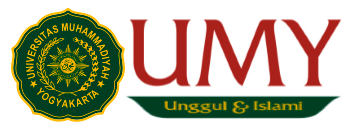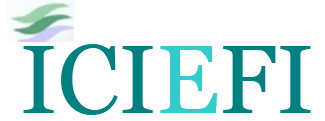International Journal of Islamic Economics and Finance (IJIEF) is an electronical journal that publishes peer-reviewed articles. This statement establises the ethical standar for all partied involvedin the publication of an article in this journal including the author, the chief editor, the Editorial Board, the peer-reviewer and the publisher (Universitas Muhammadiyah Yogyakarta). This statement is based on COPE’s Best Practice Guidelines for Journal Editors.
Journal Publication Ethical Guidelines
Publication of an article in a peer-reviewed IJIEF journal is a critical component of establishing a coherent and reputable network of knowledge. It is a direct reflection of the authors' and institutions' quality of work. Peer-reviewed articles exemplify and support scientific method. It is critical, therefore, to agree on ethical standards for all parties involved in the publishing process: the author, the journal editor, the peer reviewer, the publisher, and the society.
Universitas Muhammadiyah Yogyakarta takes its stewardship of the International Journal of Islamic Economics and Finance (IJIEF) extremely seriously, and we are aware of our ethical and other responsibilities. We are committed to ensuring that advertising, reprints, and other commercial revenue have no bearing on editorial decisions.
Publication Decisions
The editor of the IJIEF is responsible for deciding which articles should be published in the journal. Such decisions must always be motivated by the validation of the work in question and its significance to researchers and readers. The editors may be guided by the editorial board's policies and constrained by any applicable legal requirements regarding libel, copyright infringement, and plagiarism at the time. Editors may consult with additional editors or reviewers when making this determination.
Honesty
At any point in time, an editor evaluates manuscripts on the basis of their intellectual content, regardless of the authors' race, gender, sexual orientation, religious belief, ethnic origin, citizenship, or political philosophy.
Confidence
The editor and any editorial staff are not permitted to disclose information about a submitted manuscript to anyone other than the corresponding author, reviewers, potential reviewers, other editorial advisers, and the publisher, as applicable.
Conflicts of Interest and Disclosure
Without the author's express written consent, unpublished materials disclosed in a submitted manuscript may not be used in an editor's research.
Reviewers' Responsibilities
Contribution to the Editorial Decision-Making Process
Peer review assists the editor in making editorial decisions and may also assist the author in improving the paper through editorial communications with the author.
Continuity
Any referee who believes he or she is unqualified to review the research reported in a manuscript or believes that timely review is impossible should notify the editor and withdraw from the review process.
Confidence
Manuscripts submitted for review must be treated with the utmost confidentiality. They may not be shown or discussed with others without the editor's permission.
Objectivity Standards
Reviews should be conducted in a dispassionate manner. Personal attacks on the author are not acceptable. Referees should state their positions succinctly and with supporting arguments.
Sources Acknowledged
Reviewers should identify pertinent published work that the authors have not cited. Any reference to a previously published observation, derivation, or argument should be accompanied by the appropriate citation. Additionally, the reviewer should draw the editor's attention to any significant similarity or overlap between the manuscript under consideration and any other published paper about which they are personally aware.
Conflicts of Interest and Transparency
Peer-reviewed information and ideas must be kept confidential and not used for personal gain. Reviewers should exclude manuscripts from consideration if they have competitive, collaborative, or other relationships or connections with any of the authors, companies, or institutions associated with the papers.
Authors' Obligations
Standards of reporting
Authors of original research reports should provide an accurate account of their work as well as an objective discussion of its significance. The paper should accurately represent the underlying data. A paper should include enough detail and references to enable others to duplicate the work. False or knowingly inaccurate statements are considered unethical and are therefore unacceptable.
Access to and Retention of Data
Authors are requested to submit raw data associated with a paper for editorial review and should be prepared to make such data publicly available (consistent with the ALPSP-STM Statement on Data and Databases), if possible, and to retain such data for a reasonable time after publication.
Uniqueness and Plagiarism
The authors should ensure that their works are entirely original and that any work or words cited or quoted from others are properly cited or quoted.
Publication in Multiple Locations, Redundantly, or Concurrently
In general, an author should avoid publishing manuscripts that essentially describe the same research in more than one journal or primary publication. Submitting the same manuscript to multiple journals concurrently is unethical and unacceptable publishing behavior.
Sources Acknowledged
Appropriate acknowledgement of others' work must always be given. Authors should cite publications that influenced the reported work's nature.
The Paper's Authorship
Authorship should be restricted to those who made a substantial contribution to the study's conception, design, execution, or interpretation. Co-authors should include everyone who made a significant contribution. Where others have contributed to the research project's substantive aspects, they should be acknowledged or listed as contributors. The corresponding author should ensure that the paper has all appropriate co-authors and no inappropriate co-authors, that all co-authors have seen and approved the final version of the paper, and that all co-authors have agreed to its submission for publication.
Conflicts of Interest and Disclosure
All authors should disclose any financial or other material conflicts of interest that could be construed as influencing the results or interpretation of their manuscript in their manuscript. All funding sources for the project should be disclosed.
Errors fundamental to published works
When an author discovers a material error or inaccuracy in his or her published work, he or she must promptly notify the journal's editor or publisher and work with the editor to retract or correct the paper.












1.jpg)